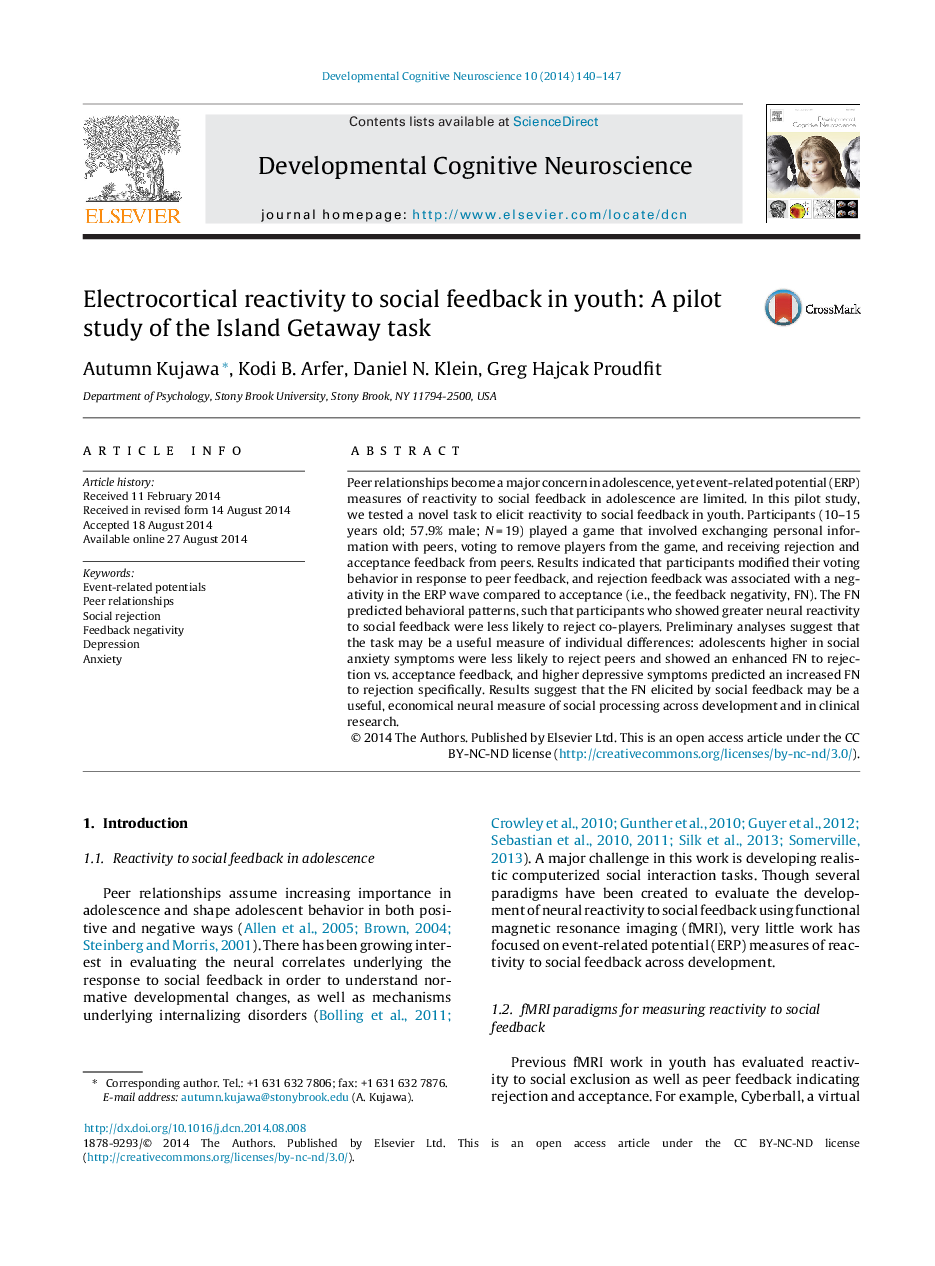| Article ID | Journal | Published Year | Pages | File Type |
|---|---|---|---|---|
| 4316616 | Developmental Cognitive Neuroscience | 2014 | 8 Pages |
•Event-related potential measure of reactivity to social feedback in youth.•Youth were more likely to reject peers who previously rejected them.•Feedback negativity (FN) was sensitive to social rejection vs. acceptance feedback.•Symptoms of depression and social anxiety related to behavioral responses and FN.
Peer relationships become a major concern in adolescence, yet event-related potential (ERP) measures of reactivity to social feedback in adolescence are limited. In this pilot study, we tested a novel task to elicit reactivity to social feedback in youth. Participants (10–15 years old; 57.9% male; N = 19) played a game that involved exchanging personal information with peers, voting to remove players from the game, and receiving rejection and acceptance feedback from peers. Results indicated that participants modified their voting behavior in response to peer feedback, and rejection feedback was associated with a negativity in the ERP wave compared to acceptance (i.e., the feedback negativity, FN). The FN predicted behavioral patterns, such that participants who showed greater neural reactivity to social feedback were less likely to reject co-players. Preliminary analyses suggest that the task may be a useful measure of individual differences: adolescents higher in social anxiety symptoms were less likely to reject peers and showed an enhanced FN to rejection vs. acceptance feedback, and higher depressive symptoms predicted an increased FN to rejection specifically. Results suggest that the FN elicited by social feedback may be a useful, economical neural measure of social processing across development and in clinical research.
